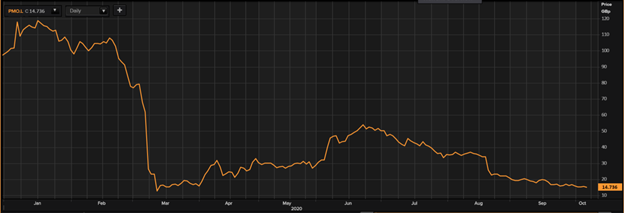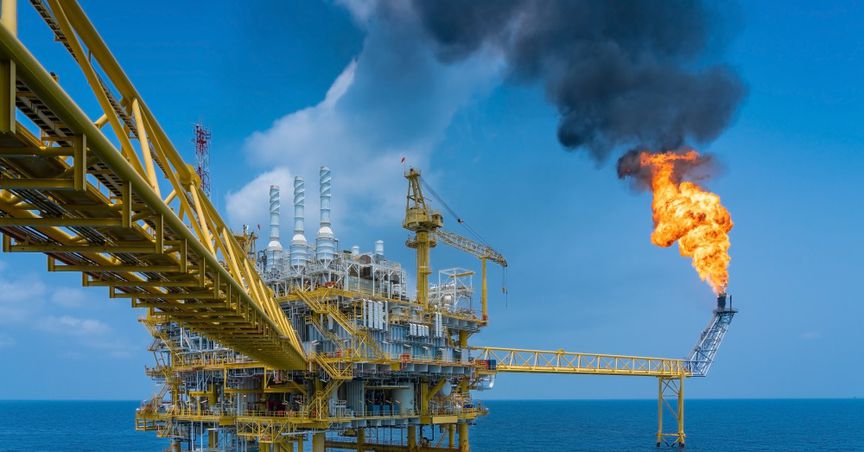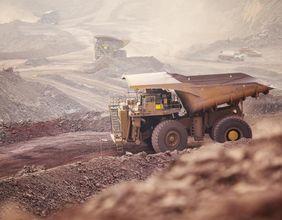Summary
- The management of Premier Oil Plc under the pressure of heavy debt and mounting pressure from creditors has agreed to be taken over by privately held Chrysaor Holdings Ltd.
- The deal paves the way for Chrysaor Holdings Ltd to have an indirect listing on the London Stock Exchange as Premier Oil would not be delisted, and existing shareholders of Premier Oil will be getting 5.45 per cent of the Combined Group.
- The new combined entity will become the largest crude producer in the North Sea, producing close to 250,000 barrels of oil equivalent per day.
In one of the largest such deals seen this year in the Oil and gas space, Premier Oil Plc, one of the biggest independent oil and gas producers in Europe will be taken over by privately held Chrysaor Holdings Ltd. The transaction is to take place after years of futile efforts, put in by the management of Premier oil to lower its debt burden and make the company financially viable. The outbreak of the Coronavirus earlier this year had a telling effect on the company, not only did its production fell, but many of its planned exploration activities had to be deferred.
The company, however, has taken adequate measures to safeguard its interests by taking appropriate hedges to safeguard its selling prices, which protected it when the prices of the commodity fell in March.
Finer points of the reverse takeover
As part of the terms of the deal $2.7 billion worth of total gross debts along with certain hedging, liabilities will be paid off by Chrysaor Holdings Ltd. Premiers creditors will be paid $1.23 billion in cash and will also be offered shares in the new combined entity, while $400 million of its letters of credit will be refinanced. Linda Cook, who is the current CEO of Harbour Energy Ltd, the largest shareholders of Chrysaor Holdings Ltd, will become the new chief of the combined entity.
Chrysaor Holdings Ltd was formed in 2007 and has since become the largest Oil and gas producer in the United Kingdom, by acquiring assets from Royal Dutch Shell, Spirit Energy and ConocoPhillips. The company has a strong private equity backing which includes Wintershall Dea Gmbh, Siccar Point Energy Ltd, and Neptune Energy Group Ltd.
The Premier Oil Plc and Chrysaor Holdings Ltd deal is subject to shareholder, creditor, and regulatory approval.
Premier Oil Plc’s debt burden and the latest financial performance
The company came out with its half-yearly report on 20 August 2020. As on 30 June 2020, $1.973 billion worth of Net debt was in the books of the company compared to $1.989 billion on its books as on 31 December 2019.
The oil production for the period stood at 67.3 kboepd compared to 84.1 Kboepd reported by the company for H1 2019. The total revenues earned by the company for the period stood at $530.6 million whereas for the corresponding period in 2019 the company had reported a revenue of $871.3 million. The operating cash flow for the period stood at $324 million, against $ 545 million reported for H1 2019. Free cash flow for the first half was reported at $25 million, whereas for H1 2019 it stood at $188 million. The company reported a loss after tax before one-off non-cash charges of $32 million while Loss after tax for the period was reported as $672 million. The profit after tax for H1 2019 was reported as $121 million. The basic loss per share from continuing operations of the company for the period stood at 78.9 cents whereas for the same period in 2019 the company had made a profit per share from continuing operations of 13.7 cents.
The impact of the pandemic on the Oil and Gas industry
The outbreak of the coronavirus pandemic has had a disastrous impact on the oil and gas industry. Due to large scale lockdowns that happened in almost all parts of the world, production and transport activities came to a standstill. This led to a sudden fall in demand for crude oil and its derivative products, and refineries not been able to lift inventory from crude producers. In the wake of this sudden fall in demand, the prices of crude also went into a tailspin, first in the month of March when Saudi Arabia suddenly decided to slash its official sale prices of crude leading to a massive worldwide crash in crude prices and second a month later when Texas Intermediate (TWI) May contracts started to trade in the negative territory. Since then, however, there has been a recovery, but its pace has been very slow.
Most of the large producers of Oil in the world have seen their revenues plummet this year and have either postponed or abandoned any immediate capital expenditure plans. The world aviation sector and the sea cargo sector, two of the largest consumers of petroleum products have been staging a very slow recovery, leaving the Oil & Gas industry, to also trend on a very slow rate of recovery. Additionally, the risk of a resurgence of the pandemic in Europe as winter sets in on the continent and threatens to undo whatever recovery has been made over the past few months.
The stock performance of Premier Oil Plc (LON:PMO) on the London Stock Exchange

(Source- Thomson Reuters)
The shares of Premier Oil Plc have been trading in the negative territory since the beginning of the year. From January till October the shares have witnessed an erosion of 80 per cent of their value. The 52-week high of the stock stood at GBX 120.70 per share and a 52-week low of GBX 10.20 per share.
The news of the reverse takeover of Premier Oil Plc by Chrysaor Holdings Ltd has not brought any cheer to the shareholders of the company, as they would be getting a very small portion of the new combined entity for their holdings in Premier Oil.
As on 7 October 2020, the shares of Premier Oil Plc have been trading at GBX 14.73 per share on the London Stock Exchange losing 4.91 per cent over the last day’s closing price.





